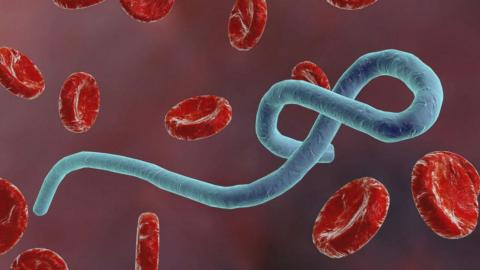
WAHO Statement on Ebola Virus Disease Outbreak in the Democratic Republic of the Congo as a Public Health Emergency of International Concern
Bobo-Dioulasso, 23 July 2019 – The West African Health Organization (WAHO), as part of its mandate to protect the health of the people in the ECOWAS region is closely monitoring the latest update of the Ebola outbreak in the Democratic Republic of the Congo (DRC).
Last week, the World Health Organization (WHO), after a meeting of its International Health Regulations Emergency Committee for Ebola Virus Disease (EVD) in DRC, declared the Ebola outbreak a Public Health Emergency of International Concern. The confirmation of a first case in Goma, a city of almost two million people on the border with Rwanda, and the gateway to the rest of DRC and the world dramatically increased the risk of spread of the epidemic.
We at WAHO associate ourselves with the recommendations made by WHO and are closely monitoring the situation in DRC. Having suffered heavily during the Ebola outbreak in our region between 2013 and 2016, it is most important that we undertake all possible precautions to reduce the risk of spread from DRC to ECOWAS countries.
“In this regard, WAHO is working with all the 15 countries of ECOWAS to ensure coordinated and integrated surveillance and early warning, rapid laboratory diagnosis for confirmation of cases, and strengthening of Human Resources for an appropriate response” – said the Director General of WAHO, Prof. Stanley Okolo.
The 15 countries of ECOWAS are on different levels of preparedness and response, but WAHO through its networking program for National Public Health Institutions/National Coordinating Institutions, provides resources that each country can avail itself of whenever necessary.
WAHO has also recently reminded all the 15 countries of ECOWAS of the regional collaboration platforms to be used in decision-making regarding the response to Ebola. The critical importance of information-sharing and reporting of any suspected case to WAHO and WHO have been emphasized.
As we learnt from the last Ebola outbreak in our region, the population has a key role to play by partnering with health practitioners and undertaking behavioral changes that reduce the risk of transmission. WAHO therefore charges each and every resident of the ECOWAS region to be doubly vigilant in this time of increased alert.
END
